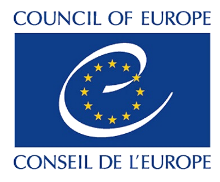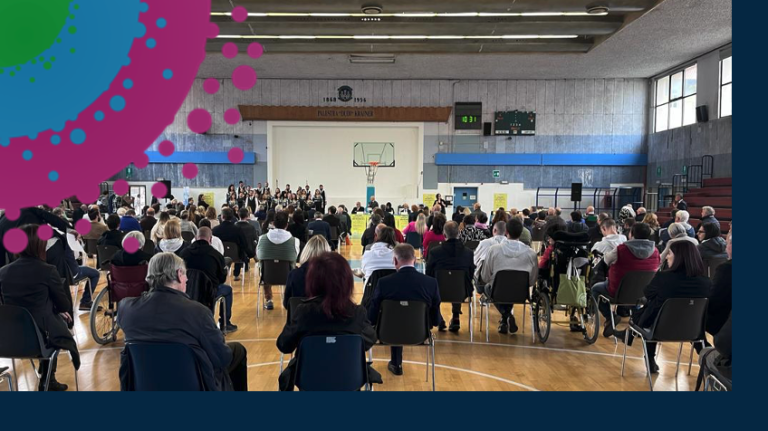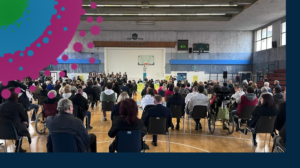Current status
Validated
Discover more
After a contribution is submitted to BePART Forum, the initiative is marked as “Submitted”; as other partners involved in the initiative submit information from their side, the initiative is marked as “Under review” and goes through the validation process; twice a year, initiatives are validated by the BePART Working Group at the Council of Europe. Successful initiatives are marked as “Validated”. Do you want to learn more – click here
Contributor(s)
First contributor: Municipality of Gorizia
Partner contributor: Institute of International Sociology of Gorizia – ISIG
Summary
The RESILOC project (Resilient Europe and Societies by Innovating Local Communities) is a Horizon2020-funded project that ended in November 2022.
The RESILOC project aimed at studying and implementing a holistic framework of studies, methods and software instruments that combined the physical with the less tangible aspects associated with human behavior. The project aimed at improving the level of resilience of local communities, through research activities and by piloting the developed solutions in 4 pilot sites (i.e., Gorizia and Catania in Italy, Tetovo in Bulgaria, West Achaia in Greece).
The Municipality of Gorizia, in close collaboration with the Institute of International Sociology of Gorizia (ISIG), has led a participatory process with the community of Gorizia for the creation of the Local Resilience Team (i.e.,LRT) and the assessment of the vulnerability of the community in 6 different dimensions. The LRT is a voluntary and informal group of citizens with tasks of awareness raising, dissemination and mapping of the local vulnerabilities on resilience, designed to function as the link between the citizens and authorities in charge of emergency response. The LRT represents the link between the local Civil Protection Service of the Municipality and the community, collecting needs and point of views from the citizens. Local Resilience Teams are active participation tools for local resilience and civil protection policymaking.
Throughout the project implementation, the LRT, , held more than 25 workshops to assess the vulnerability of the community and to co-produce a Local Resilience Strategy. The first draft of the Local Resilience Strategy was structured based on six dimensions (i.e., Governance, Social, Economic, Environment, Networks and Infrastructures, Disaster Risk Reduction) foreseeing one long- term objective and several sub-objectives for each section.
The Local Resilience Strategy was voted by a Citizens’ Jury on the 16th of October 2022, being the closing moment of the participatory process activated by RESILOC in Gorizia. The Citizens’ Jury was held during a local Solidarity Award Ceremony, involving many representatives of CSOs. During the Citizens’ Jury, 108 people expressed their vote on each section of the Local Resilience Strategy on a scale from 1 (min) to 10 (max).
In that occasion, the Local Resilience Strategy was confirmed in its validity as a guiding line for the improvement of resilience of the Municipality of Gorizia. The Local Resilience Strategy was later approved by the City Council in November 2022.
Administrative level
Year of implementation
2022
Policy area(s)
- Civil protection
- (Local) Development and Planning
Further details
Sorry, no records were found. Please adjust your search criteria and try again.
Sorry, unable to load the Maps API.
ISIG – Institute of International Sociology of Gorizia
Civil society organisation
Contact info
kakovic@isig.it
Tipology of involvement in the initiative
- Initiating (i.e., advocating for and starting the process)
- Organising
- Participating with a direct involvement
Level of Participation
- Consultation
Discover more
By level of participation we refer to the type of involvement in the decision-making process. The levels are identified by the intensity of participation: going from “information” to “consultation” to ” dialogue” to “partnership”. Do you want to learn more – click here
Developed practice(s)
Step(s) of the political decision-making process at which the practice was implemented
- Agenda Setting of policy
Discover more
There are six different steps of the political decision-making process: agenda setting, drafting of policy, decision-making, implementation of policy, monitoring and reformulation of policy. Each step offer opportunities for CSOs and public authorities to interact. Do you want to learn more – click here
How the initiative was implemented
Situation
Activities performed
Tools and mechanisms applied
Goals of the civil participation initiative
At community level
From Civil society organisation’s perspective
From Public Authority’s Perspective
Results expected prior to the implementation
The results expected were:
- To confirm the LRT as a policy-making and policy-design tool for local resilience enhancement.
- To validate the dimensions of analysis and the objectives of the Local Resilience Strategy.
Immediate results achieved after implementation
Long-term impact
Practice lessons learnt (obstacles and solutions)
| Agency (i.e., political conditions/power structures) | Obstacles | N/A |
| Solutions | N/A | |
| Legislative | Obstacles |
Local Resilience Strategies are not widespread/common practices in Italy.
|
| Solutions |
The objectives and structure were inspired by other Resilience Strategies (i.e., European and international) and by the results elaborated from the LRT during the participatory process.
|
|
| Administrative | Obstacles | N/A |
| Solutions | N/A | |
| Socio-cultural | Obstacles |
Resilience-related topics are not considered yet as fundamental for the policy-making process and in the public feeling.
|
| Solutions |
The participatory approach provided the opportunity to start talking and understanding the topic of resilience.
|
|
| Economic | Obstacles | N/A |
| Solutions | N/A | |
| Human capital | Obstacles | N/A |
| Solutions | N/A | |
| Other | Obstacles | N/A |
| Solutions | N/A |
Further information
/
Self-assessment
The self-assessment presents the opinion of the contributor about on what extent the following principles for Civil Participation have been reflected in the implementation of the initiative/practice/case-study, ranging from 1 (min) to 4 (max) (N/A: not applicable, do not know)
| Openness | 4 |
| Explanation |
For the first time, the citizens of Gorizia had the opportunity to directly vote a document which would be part of the fundamental document guiding the future development of the city.
|
| Trust | 4 |
| Explanation |
The Local Resilience Strategy was the result of a transparent and fruitful interaction among the PA, the LRT and the Civil Protection Service and the community in general.
|
| Independence | 4 |
| Explanation |
The LRT worked independently, with the support of the PA.
|
| Participation | 4 |
| Explanation |
The LRT represented mostly NGOs and CSOs working on disability and inclusion. Until this moment, no project of the Municipality of Gorizia had an holistic approach towards disability and resilience.
|
| Transparency | 4 |
| Explanation |
The process and results are part of the results of RESILOC project.
|
| Accessibility | 4 |
| Explanation |
The Citizens’ Jury was open to all the citizens who wanted to attend to the Jury and to the Solidarity Award Ceremony which was well advertised in the community.
|
| Non-discrimination | 4 |
| Explanation |
No discrimination at the access to the Citizens’ Jury were applied. All citizens above 18 years old were able to participate.
|
| Inclusiveness | 4 |
| Explanation |
All citizens above 18 years old were able to participate.
|
| Accountability | 4 |
| Explanation |
The documentation of the survey administered is still at disposal.
|
Thank you for wanting to share your experience on the BePART platform!
Learn more about the submission process, or just fill the form below.



